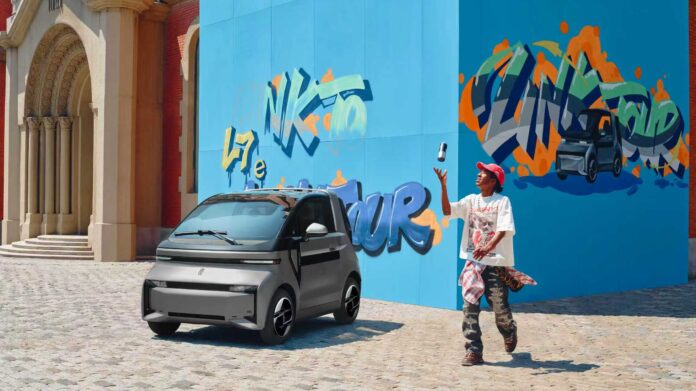MUNICH, Sept. 25, 2025 (GLOBE NEWSWIRE) — At the IAA Mobility 2025, Chinese EV newcomer Linktour Automotive made its European ambitions official. However, unlike many competitors focusing on volume segments, Linktour is executing a targeted strategy: entering the premium niche of the microcar market. For German financial observers, this raises a critical question—is there a viable business model for high-end, tech-infused city cars?

In an exclusive interview with OnVista, Zheng Lei, the vice general manager, clarified the rationale. “We see a significant gap that hasn’t been fully addressed yet,” he stated. “While existing options serve a basic need, many lack the elements that define modern urban life: style, personal expression, and smart technology.” Linktour’s approach is not to compete on price but to create “a new class of urban mobility,” positioning its L6e and L7e models as emotionally engaging lifestyle products rather than mere utilities. This focus on margin over volume is a calculated risk in a segment traditionally driven by cost-consciousness.
The brand’s potential differentiator lies in its industrial backbone. As part of the Shandong Weiqiao Pioneering Group, a Fortune Global 500 leader in aluminum production, Linktour possesses an inherent cost and engineering advantage. The use of an all-aluminum frame—a first for vehicles in this class—directly translates to weight reduction and efficiency gains, a tangible benefit of vertical integration. This material science edge is central to its value proposition.

Furthermore, Linktour is deploying advanced technology typically reserved for larger vehicles. The application of Cell-to-Body (CTB) technology in microcars is a strategic move explained by three pillars: “performance and safety,” “efficiency,” and “innovation.” By integrating the battery into the vehicle’s structure, Linktour enhances rigidity and safety while saving weight and space—a crucial advantage in a small vehicle. This technological ambition signals an intent to redefine segment standards and justify a premium positioning.

Regarding European operations, Linktour’s strategy appears phased and pragmatic. When questioned about local production, Zheng Lei indicated no immediate announcements but emphasized a “commitment to building a sustainable and resilient business model.” The initial focus is on establishing a “robust and localized” sales and service network. Long-term, the company is “actively exploring opportunities” to bring its sustainable industrial chain, including aluminum recycling, closer to European customers. This suggests a cautious, demand-driven approach to capital expenditure, likely appealing to risk-aware investors.
For the German and broader European market, Linktour’s success will hinge on convincing urbanites that a microcar can be a desirable, high-tech accessory rather than a compromise. By combining its manufacturing pedigree with a focus on design and personalization—epitomized by the industry-first “Art Window”—Linktour is betting that a sufficient number of consumers will prioritize style and smart features over pure practicality.
From an investment perspective, Linktour’s entry is noteworthy not for disruptive scale, but for its focused, premium niche strategy. Its ability to leverage parent company resources and deploy advanced technology efficiently will be key metrics to watch. The company is essentially testing the hypothesis that the micro-mobility segment is ready for a significant upgrade—a bet that, if successful, could unlock a new, high-margin category in the European EV landscape.
Contact: Li Qingyi, [email protected]

